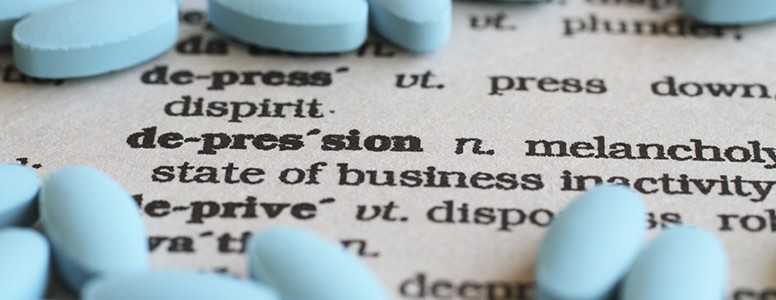People who have both type 2 diabetes and depression tend to experience better control of their blood glucose levels if they take antidepressant medication, a new study reports.
New research from the Saint Louis University School of Medicine, United States aimed to investigate how antidepressant medication (ADM) affected glycemic control in depressed type 2 diabetes patients.
According to the National Institute of Health and Care Excellence (NICE), people with diabetes are up to three times more likely to be diagnosed with depression compared to people without diabetes. Depression is associated with increased risks of hyperglycemia, morbidity and mortality, the researchers noted.
In a retrospective study, the electronic records of nearly 1,400 people with type 2 diabetes were evaluated from 2008 to 2013. Information included lab tests on blood sugar levels, which was measured by HbA1c, and prescription data on antidepressant use. The patients had an average age of 62 years old.
225 patients were being treated for depression, while 40 individuals had been diagnosed with depression but were not taking medication.
The average HbA1c levels of all participants was 7.7 per cent (60.7 mmol/mol), but 51 per cent of those treated for depression had better HbA1c levels compared to 35 per cent of patients with untreated depression.
“After adjusting for covariates, depressed patients receiving ADM were twice as likely as those not receiving ADM to achieve good glycemic control,” the authors wrote.
The researchers acknowledged, though, that a limitation with the study was being unable to determine whether ADM led to better glycemic control, of if lowering blood sugar eased the symptoms of depression.
Furthermore, if ADM made people feel better and enabled them to make better choices regarding their diabetes management, this could also have improved their blood glucose levels.
Dr. Robert Cohe, of the University of Cincinnati College of Medicine and the Cincinnati VA Medical Centre, who wasn’t involved in the study, warned patients to be aware that certain ADM and antipsychotic medication can be associated with weight gain and poor glycemic control.
Cohen told Reuters Health: “That’s why it is important to have those medications prescribed by a health care provider who will be following along closely enough to detect that and determine when changes are needed.”
The findings were published in the online journal Family Practice.
What's new on the forum? ⭐️
Get our free newsletters
Stay up to date with the latest news, research and breakthroughs.






